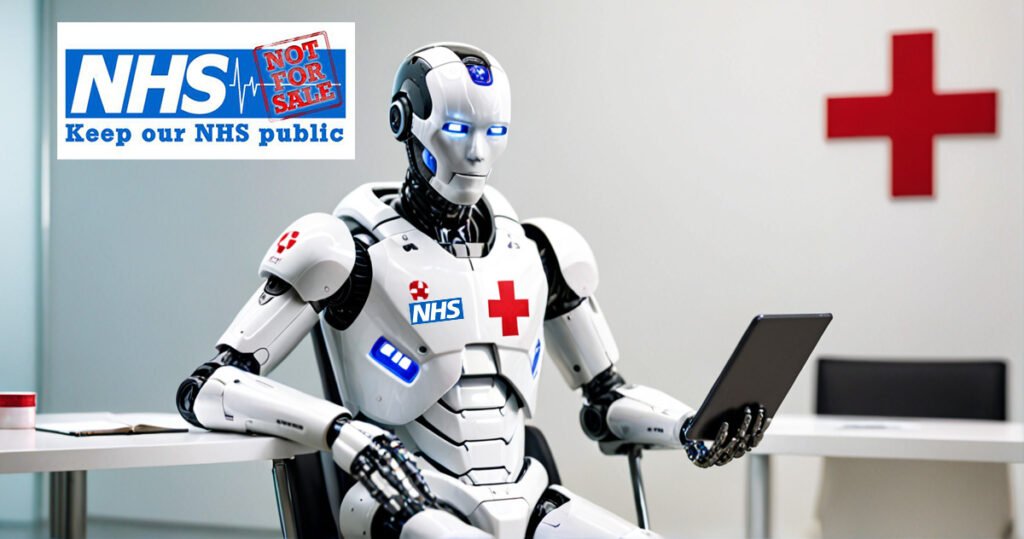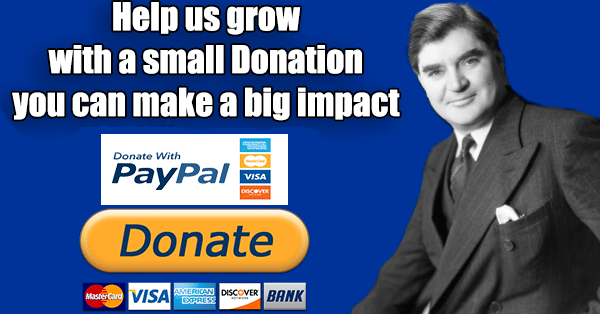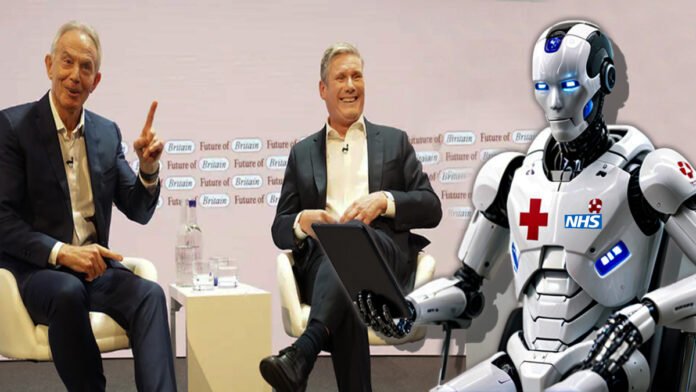Are Labour Heading For Chatbot Doctors?
In a move that’s sure to raise eyebrows and blood pressures across the UK, former Prime Minister and current Labour whisperer Tony Blair has unveiled his vision for the future of the NHS. Spoiler alert: it involves fewer GPs and more chatbots. Yes, you read that right.
Blair’s think tank, the Tony Blair Institute for Global Change (TBI), accidentally leaked a report proposing a radical overhaul of the NHS. The plan? To consolidate GP practices into super primary care centres serving up to 250,000 patients each. It’s like supersizing your healthcare, but instead of fries, you get AI.
Digital Doctoring: Tony Blair’s Plan to Revolutionise the NHS
The report, which was hastily deleted from the TBI website before being officially published, reads like a tech startup’s fever dream. It advocates for a centralised store of digitised health records to power “AI doctors” that would interact with patients through chatbots. Because nothing says “personal care” quite like pouring your heart out to an algorithm.
At the heart of Blair’s proposal is the consolidation of GP practices into “super primary care centres” serving up to 250,000 patients each. This represents a five-fold increase from the current model, where primary care networks typically serve 30,000 to 50,000 people. The report argues that this consolidation would allow for a more efficient allocation of resources and a shift towards a “population health management” approach.
But wait, there’s more! The TBI is backed by tech billionaire Larry Ellison, whose company Oracle just happens to be in the business of cloud computing and digitising health records. Larry Ellison, whose cloud computing company Oracle stands to benefit from the AI boom and health record digitisation, has pledged $375 million to the think tank.
The report itself received input from an Oracle health division employee and other health tech companies, fuelling concerns about potential conflicts of interest. What a fortunate coincidence for Mr. Ellison that Blair’s vision aligns so neatly with his commercial interests. I’m sure it’s purely coincidental.
Health campaigners are, unsurprisingly, less than thrilled with this proposal. Sam Smith from Medconfidential summed it up succinctly: “Blair wants Labour to close your GP and have you talk to a chatbot instead.” It’s like replacing your family doctor with Siri’s medical school dropout cousin.
Health campaigners warn that these proposals could lead to the dominance of GP “chains” run by private companies. Sam Smith of Medconfidential, an organisation campaigning on health data issues, bluntly stated, “On substance, Blair wants Labour to close your GP and have you talk to a chatbot instead.” Diarmaid McDonald, director of Just Treatment, echoed these concerns, suggesting that the proposed changes would likely result in fewer GPs and a further opening up of the NHS to corporate interests.
But surely the warm glow of a computer screen is just as comforting as a doctor’s reassuring smile, right?
Digital Doctoring

The TBI, when asked for comment, pointed to Fiona Edwards, a NHS executive who’s drunk the digital Kool-Aid. She praised the data-driven initiatives, seemingly oblivious to the fact that most patients would prefer a doctor who knows their name over one who knows their data points.
In Blair’s brave new world of healthcare, the personal touch is out, and population health management is in. It’s efficiency over empathy, algorithms over bedside manner. One can’t help but wonder if the next step is replacing patients with more cost-effective robots.
While proponents of Blair’s plan point to potential efficiencies and data-driven improvements, the human cost of such a transformation cannot be ignored. The NHS has long been a source of pride for the UK, offering personalised care accessible to all. The risk of losing that in pursuit of technological solutions and corporate efficiencies is a grave concern.
While artificial intelligence undoubtedly offers remarkable potential across various fields, when it comes to our health, there’s an irreplaceable value in human interaction and empathy. A doctor’s bedside manner – their ability to listen, empathise, and provide comfort – is as vital to healing as their medical expertise. AI may process data at lightning speed, but it cannot truly understand the nuanced experience of pain, the anxiety of illness, or the relief of recovery.
The human touch in healthcare isn’t just about comfort; it’s about intuition honed through years of experience, the ability to read between the lines of what a patient says, and the capacity to make judgment calls that go beyond mere data analysis. A skilled physician doesn’t just treat symptoms; they treat the whole person, considering factors that may not be immediately apparent or easily quantifiable.
Moreover, the doctor-patient relationship is built on trust, something that develops through personal interaction and shared experiences. This trust is crucial for effective treatment, as patients are more likely to follow advice, be honest about their symptoms, and engage actively in their healthcare when they feel a personal connection with their caregiver.
While AI can certainly augment and support healthcare delivery, it should enhance rather than replace the human element. The ideal future of healthcare likely lies in a harmonious blend of cutting-edge technology and compassionate human care – where AI handles the data-heavy lifting, allowing healthcare professionals more time and resources to focus on the interpersonal aspects of patient care.
In essence, when it comes to our health, we need technology that empowers the human touch, not replaces it. After all, healing is as much an art as it is a science, and the art of medicine is inherently human.
As George Orwell presciently wrote, “Progress is not an illusion, it happens, but it is slow and invariably disappointing.” In the case of healthcare reform, we must ask ourselves: is this progress, or a step towards a dystopian future where human connection is sacrificed at the altar of efficiency? The debate over Blair’s vision for the NHS is not just about healthcare policy; it’s about the kind of society we want to live in and the values we hold dear.
Welcome to NHS 2.0, where your health is just a chat away – literally.
This is a "Pay as You Feel" website Please help keep us Ad Free.
You can have access to all of our online work for free. However if you want to support what we do, you could make a small donation to help us keep writing. The choice is entirely yours.

























You must be logged in to post a comment.